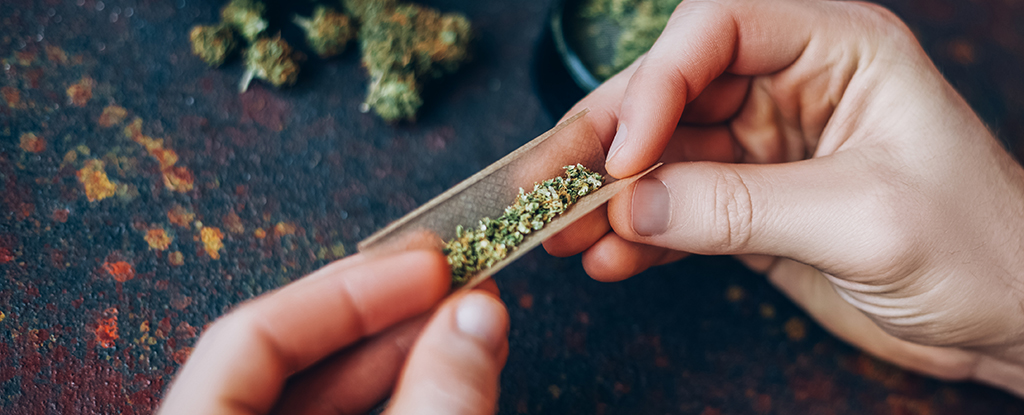Consuming higher-potency cannabis between the ages of 16 and 18 doubles the likelihood of psychotic experiences between the ages of 19 and 24, compared with lower-potency cannabis – according to a new study of 1,560 UK adults.
Researchers from the University of Bath and the University of Bristol in the UK say more work needs to be done to understand the long-term effects of high-potency cannabis (such as skunk) on people in their later teenage years.
With cannabis potency trending upwards, the health of young adults may be at risk. The concentration of THC (tetrahydrocannabinol), the main active ingredient in the drug, has increased by about 14 percent from 1970 to 2017.
“Young people using higher-potency forms of cannabis are twice as likely to have experiences associated with psychosis, such as hallucinations and delusions,” says psychologist Lindsey Hines from the University of Bath.
“Importantly, the young people we asked had not previously reported these experiences before starting their cannabis use.”
The data analysis showed that 6.4 percent of young people using cannabis reported new psychotic experiences, compared with 3.8 percent of non-users.
Among people who did use cannabis, 10.1 percent of those using higher-potency versions of the drug reported some form of psychosis, compared with 4.5 percent using lower-potency forms.
Psychotic experiences reported by cannabis users include hallucinations, delusions, and “thought interference” – such as believing other people can hear what you’re thinking. For the researchers, it’s a sign that teen drug use, and cannabis infused with more THC, are issues that need to be addressed.
“Cannabis is changing and higher-potency cannabis is increasingly available,” says Hines. “We need to improve messaging and information available to young people on the impacts of cannabis use in the 21st century.”
This is the first study to look at the relationship between cannabis potency and psychotic episodes occurring years later, though it’s worth noting that the research was based on self-reported drug use at the age of 24, rather than any clinical monitoring.
The new evidence isn’t enough to prove a direct link, or cause and effect, between high-potency cannabis and psychotic experiences: there may be some other, unknown factor that makes people more likely to use stronger versions of the drug and be more prone to hallucinations and delusions, for example.
Considering links between higher-potency cannabis and higher psychosis risk have been found before, the researchers want to see efforts to reduce the potency of the cannabis that’s available to teens in all countries – whether or not cannabis has been legalized in that part of the world.
“This adds to the evidence that use of higher-potency cannabis may negatively impact mental health,” says Hines.
The research has been published in Addiction.





